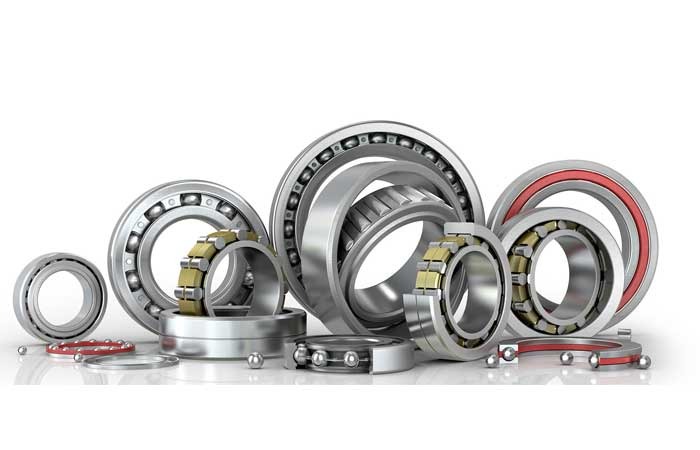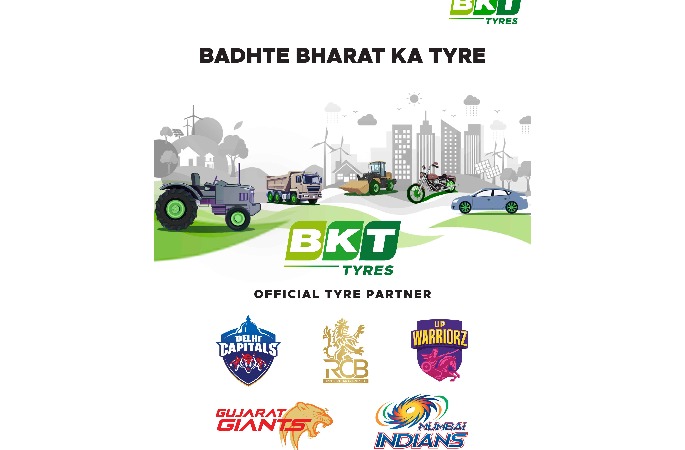Enhancing efficiency

Indian bearing market is
estimated at Rs 95 billion and it constitutes less than 5 per cent of global
bearing demand. In terms of consumption, about 60 per cent of requirement is
catered through domestic production while the remaining is met through imports.
Indian market is dominated by international majors as well as indigenous
players like NEI, NRB and others. While there are large numbers of players
present in the industry, the competitive intensity is moderate as the top 5
players constitute approximately 80 per cent of the market share. Major market
holders are having robust technology collaborations with their parent foreign
holding group which is a strength as bearings require the highest standards of
quality because of their end use in critical machine parts.
Bearing as a component
is in itself quite excluded with each category placing its important use in
different machines/machine parts and not limiting to specific manufacturing
industry. Bearings have extensive use both in the industrial sector and
automobile sector because of the functionality for which it is made;
constraining relative motion to only the desired motion, and reducing friction
between moving parts.

Emerging markets with
infrastructure needs continue to accelerate the growth of construction
equipment manufacturing, which in-turn drives the bearing market in
construction segment. Bearings will always be in demand as it is the inevitable
part of an equipment that fulfill a number of important functions, starting with
their ability to reduce friction. Other primary functions include supporting a
load, promoting the efficient transmission of power and ensuring alignment is
maintained. These characteristics enable machinery to run for a longer
operating period at a more efficient rate. However, it is also important to
select the right bearing with respect to the application, in order to get the
net result of optimum efficiency of the machine. Bearing maintenance is also
equally important to achieve the desired efficiency of the bearing and the
machine. Lubrication plays an important role in the maintenance and prolonged
life of bearings.
Bearings fulfill a
number of important functions, starting with their ability to reduce friction.
Other primary functions include supporting a load, promoting the efficient
transmission of power, and ensuring alignment are maintained. These
characteristics enable machinery to run for a longer operating period at a more
efficient rate. The net result is that bearings enable machinery to consume
less energy.
Current market
Kaustubh V Phadtare,
Managing Director, Kavitsu Group of Industries, elaborates, “Construction equipment uses a variety
of bearings, right from three-row roller bearings to smaller single-row ball
bearings. These are chosen based on the load ratings of the vehicles and
whether they are dynamic or stationary. These bearings can be externally geared
or internally geared, with a driving pinion shaft.
According to Phadtare,
bearings are an essential part of construction equipment as they help to reduce
friction while rotating the surfaces. He adds, “Choosing the right bearing
depending on the load rating and working cycle is very important, as wrong
selection can be catastrophic. Also, proper and timely maintenance ensures that
the bearing lasts for a longer period. Manufacturers must also follow strict
quality checks so that there is no premature failure in the bearings.”

“Working closely
together with the manufacturers of construction machinery, engineers in the
Schaeffler Group develop bearing solutions that meet the extreme requirements
in this field. To do so, they incorporate the ever-increasing demands - such as
greater automation, higher safety standards, better reliability and easier
operability - into further developments and innovations. We have developed
bearings with lightweight steel alloys of different grades, alternate materials
like ceramic, etc. Apart from this, we have also developed special coatings for
our bearings, thereby improving the performance of bearings. We also offer
mechatronic solutions for CE applications which enhance value output for our
customers,” said Harsha Kadam, MD and CEO, Schaeffler India.
According to Sanjay
Koul, Chairman and Managing Director, Timken India, “Infrastructure sector
has become the biggest focus for the government and vision 2030 proposed action
plan to become a manufacturing and export hub for construction equipment and
propel the development of world-class infrastructure in the country. Apart from
infrastructure, the industrial sector is also expected to do well in coming
years due to programmes such as Atmanirbhar Bharat and Make in India, which
should further drive growth in the construction equipment market and have a
direct impact on demand for bearings in the CE market.”
Rangababu Ch, Segment
Leader Heavy Industry, SKF, said, “The
market for construction equipment will follow an upward trend in the medium to
long term, with BS(CEV)-IV emission norms getting rolled out, the construction
equipment industry is looking beyond the Middle East and Africa and enter in
the developed country market. Equipment makers are looking for cost-effective
solutions as the input cost is increasing. The market is moving towards
maintenance-free bearings, made-in-India products, and telematics/intelligent
feedback system is gaining momentum.
“India is becoming a
global manufacturing hub, which means the demand for industrial bearings will
continue to expand. Fuelling further economic development and the need for
bearings is the country’s strong consumer base and skilled workforce. Considerable
growth is projected for construction equipment as government initiatives to
boost the country’s infrastructure take effect. This equipment will capitalise
on a longstanding trend for bearings to effectively manage heightened power
density. Construction equipment is constantly evolving toward higher
efficiency, lower carbon footprint and greater productivity. Rolling and
sliding bearings are advancing in tandem towards lower friction, higher speeds
and higher load carrying capabilities,” said Pramod Francis, Head –
Application Engineering, CCTY Bearing India.

Innovations
Phadtare explains, “Kavitsu
provides solutions for every range of the product comprised in the construction
equipment portfolio. The major products include bearings for excavators,
crawlers, tower cranes, telescopic cranes, truck-mounted cranes, bridge repair
cranes, and so on. Also, smaller bearings are supplied for bulldozers and road
rollers.”
Says Rangababu, “In my
view, factory owners, today, are looking to Big Data, artificial intelligence,
and machine learning to revolutionise processes and efficiency on the plant
floor as well as fleet maintenance. SKF is working alongside them to drive
digitalisation. Through our unique business model – Rotating Equipment
Performance (REP) – we partner with customers in the asset management area to
improve the reliability, and availability of machines in the field.”
Says Koul, “Construction
equipment industry continues to evolve with adoption of technologies such as
hybrid transmission. Timken, with its vast knowledge in bearing and friction
management, is helping its customers choose the right bearings for each
application. This helps to increase productivity and reduce vehicle downtime,
thereby enhancing the overall value for customers.
“By delivering
high-precision bearing solutions and systems for a large number of industrial
applications, the Schaeffler Group is shaping "Mobility for tomorrow"
to a significant degree. Schaeffler plays a large part in achieving peak
performances in a wide variety of construction machinery around the world. The
INA, FAG and LuK brand products used are characterised by high-performance
density, long operating life, and maintenance-free bearing and clutch solutions
at many installation points. CE manufacturers and operators face multiple
challenges: Complexity is continuously increasing, market requirements are
changing rapidly - and Schaeffler's mechatronic modules and cost-effective,
ready-to-use system solutions provide the perfect answer. Schaeffler has been
developing mechatronic components for a wide range of industrial applications
for some years. These components are "enablers" for Industry 4.0 and
they will not only reduce downtime but also help in predicting failures,” says
Kadam.
CCTY Bearing’s most
recent innovation is the Square Ball Universal Joint. Francis adds, “This
patented design replaces a convention universal joint in intermittent
applications, such as steering. The maintenance-free bearing has just eight
components.”
As a key supplier to the
CE market, CCTY Bearing invests in both its products and partnerships. The most
notable is a new manufacturing plant under construction in Gujarat. Slated for
completion in 2022, the Indian facility will provide 25,100 m2 of
manufacturing, warehouse and engineering assistance. This expanded footprint in
India will join CCTY Bearing’s global network of offices that provide
engineering support, design assistance and warehousing for JIT delivery.
Product expansion includes the formulation and development of propriety PTFE
and POM-based sliding layer materials. These maintenance-free options for
bushes and spherical plain bearings extend the bearing’s life while reducing
wear and fatigue. An in-house research and development lab allows customers to
achieve application-specific designs and lubrication formulas for maximum load
and life.
SKF is a big player in
the lubrication systems area for mobile and earthmoving machinery to lubricate
chassis parts, pins, bushes, steering arms, brake cams, slewing rings, buckets
and boom parts. We are also working on intelligent, need-based lubrication
systems to reduce the overall lubricant consumption and its associated costs.
Adds Rangababu, “We have
developed drum bearing for compactors (CRB) in our domestic factories, we are
also working on plain spherical bearings for articulation joints for
compactors/hydraulic cylinders. Apart from this, we have hydraulic seals, and chains
for construction equipment as a product range.”
He adds, “In the
Industrial segment, we have a wide product portfolio of bearings, seals, and
lubrication systems, coupled with rotating equipment solutions and
remanufacturing. We cater to all industries globally, directly as well as
indirectly, through a network of distributors. We are also the undisputed
leader in the industrial distribution market, which primarily serves the
aftermarket. With SKF’s unique REP programme, we are partnering with customers
wherein SKF takes the responsibility of managing the customer assets to improve
the reliability and availability of the assets, and supply of parts at an
agreed fixed monthly subscription.”
Timken works closely
with its customers and provides design and application recommendations to
optimise performance and reliability. In other words, our latest innovation in
bearings with appropriate modifications like fuel efficiency, debris
resistance, improved life, etc. has been designed and produced based on
customer requirements.
AKSH Manufacturing has
around 100 units of standard variants for AKSH slew ring bearings including
without gear and with external or internal gear. The company manufactures bearings
of outer diameter ranging from 120 mm to 1,500 mm. Apart from a standard set of
bearings, the company does customisation based on the specific requirement of customers
as we have our own technology. We do 40 per cent of business in customised slew
bearings. We will be shortly introducing our range of high-performance slew
drives with minimum of 50 units of standard variants.
Challenges
Regulatory requirements
of emission rules and improved safety norms demand reduced vehicle weight and
lower friction technology. Customers require a lighter weight, intelligent
vehicle control, and of course, low noise and improved reliability from their
vehicles. It clearly requires companies to have robust R&D and new
production facilities to cater to such specifications.
The companies with a technological
partnership with their foreign group entities do put forward as on stronger
hold as compared to the Indian companies with no foreign collaborations as they
have the advantage of tried and tested technical competencies before being
brought into India.
Raw material cost
accounts for around 60-62 per cent of bearings manufacturer’s revenue. Bearings
are mainly manufactured using high-grade steel or alloy steel, which exposes
them to global steel price movement. Though the top players have the advantage
of increasing prices on the back of technical know-how and quality standards,
but still increasing input costs is a big hurdle to increasing the margins
beyond a constant level.
Tough market
conditions
The Covid-19 pandemic
has adversely impacted the market where every industry slowed down. The demand
for bearings in the construction equipment segment is down because equipment
sales and utilisation are low. In April and May, construction activities were
the lowest and due to which the sales and utilisation of various equipment
almost came to a standstill. The current market is distressed with the Covid-19
pandemic impact, but the growth scenario in infrastructure. The government’s
ambitious plan for National Infrastructure Pipeline (NIP) is expected to bring
back the momentum in construction activities. The recent reforms in the mining
segment have created a movement in coal mining and other mineral mining
activities. All these are expected to drive the demand for more high-capacity
bearings for CE applications in India.
Bright future ahead
Considering the
opportunities set in several industries along with prospective initiatives by
Govt. of India, the Indian bearings industry has a great foreseeable roadmap
ahead. This makes the industry an opportunity for investors. Not all companies
are investible and clearly, the valuations have to be justifiable, but the
industry is worthy of in-depth research and continuous observation of its
performance.
With the construction
and mining equipment market forward-looking on account of the increased
construction activity, bearings will see better movement in the years to come.
|
BEARING
LUBRICATION: KEY CONCEPTS
·
Advancements
in materials have extended the operating life of bearings, even under severe
operating conditions.
·
New additives
enable bearing lubricants to be designed and developed for specific
applications.
·
Future
bearing materials will boost performance and improve efficiency.
·
Choosing the
right bearing depending on the load rating and working cycle is very
important.
|














